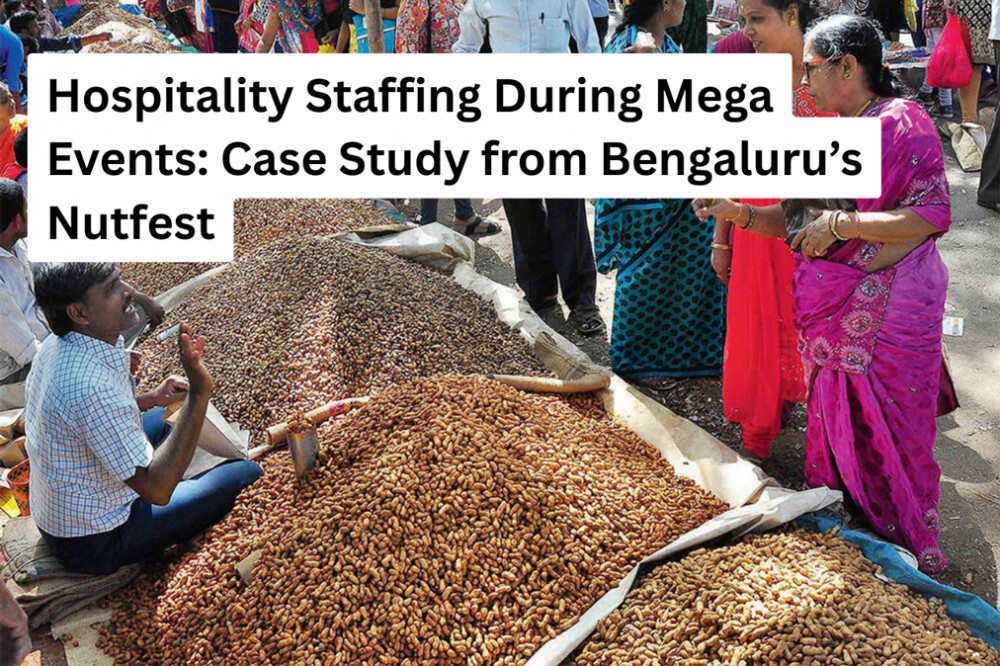
Quick Training & Onboarding Tips for Seasonal Hospitality Staff

Each peak season in India's hospitality industry brings with it the assurance of a few things — busy hotels, busy restaurants, and the fast flow of new faces pushing up from the bottom of the corporate ladder.
Whether there is a festive rush around Diwali, a winter tourism boom in Rajasthan, or a coastal influx in Goa at Christmas and New Year, temporary staff become the bedrock of the industry.
However, training and onboarding them efficiently — and quickly — is still a considerable challenge faced by many hotels in India, as well as resorts and F&B outlets. The success of a guest experience is partially dependent on how quickly temporary staff can adjust to your service standards and operational pacing.
Here is how hospitality businesses in India can develop a systematic, fast, and effective plan for bringing on board seasonal staff — without losing the characteristically Indian hospitality warmth and consistency.
1. Start the Preboarding — Before They Get Here
Don’t wait to introduce your brand and your expectations to your new hires for their first day. The best hotels in India — from Taj to Oberoi — have a preboarding onboarding process before they even set foot on property.
Pre-joining communication.
Use WhatsApp groups, email, or simple PDFs to share important information regarding the property layout, dress code standards, grooming standards, and guest etiquette. You can even include short videos of how to greet guests (with a simple “Namaste”), how to properly handle a tray or checklists for inspecting rooms.
Preboarding checklist.
This can include ID verification, uniform fitting, and the basic do's and don'ts — allowing for minimal delay and confusion when they arrive on their first day.
By the time they walk through the doors, your new seasonal hires already know what is expected of them — thus saving you a lot of brief time!
2. Organizing the Onboarding Process
A new hire's first week can feel chaotic, confuse or overwhelm them, and affect the quality of service they provide when starting with unfamiliar processes. Having a thoughtful schedule can ease this chaos and create some order and clarity, and give the new hire confidence.
Here is a suggested framework that would be appropriate for hotels and restaurants in India, or any other context.
- Day 1: Welcome orientation, tour of property, paperwork, and team introductions.
- Day 2: Training on department-specific SOPs (front office, housekeeping, F&B service, kitchen, etc.).
- Days 3-5: direct shadowing with supervisors or senior staff members.
- End of Week 1: Feedback meeting and skill-check.
This type of schedule will help ensure the new hires, even on a large team who you hire all at once at the peak season, will all receive the same or similar onboarding and training.
3. Concentrate on the Basics
In the hospitality industry, not all training is required to happen as quickly as possible. If you have seasonal employees, first train them on important operational and behavioral skills that will directly impact guests.
For instance:
- Greeting and communication etiquette.
- Food safety and hygiene protocols (especially relevant to the post-COVID era).
- Operating billing systems and/or order-taking apps (e.g., Toast).
- Safety and emergency procedures.
Do not overwhelm them with brand history or managerial policies right away. It is better to introduce this content over time with brief learning sessions or through e-learning.
Regardless, the objective is to help them perform their job functionally within 3–5 days and feel comfortable communicating with guests in a competent manner.
4. Microlearning for Faster Retention
Short, focused training modules help to maximize learning for seasonal staff that have limited time. Microlearning — 5–10-minute lessons — can help maintain attention and provide some practical learning.
Here are some examples of microlearning in the Indian context:
- Short Hindi-English video tutorials on front desk phrases or upselling.
- Flashcards for menu items, regional dishes, or ingredients for F&B teams.
- Visual SOPs for housekeeping checklists or banquet set-ups.
These smaller modules can easily be shared over WhatsApp, which most Indian staff are comfortable with, to help create a more accessible and mobile-friendly learning experience.
5. Establish a “Buddy” or Mentor
Most Indian hotels have mentorship built into their culture, so harness it to benefit new hires.
Assign each new seasonal hire to a senior team member or returning seasonal hire. This "buddy" system:
- Alleviates anxiety in the first weeks
- Builds camaraderie across levels
- Promotes hands-on practice and immediate clarifications
It also creates a sense of belonging, which is a strong motivator for temp hires that might be feeling like outsiders.
6. Use Technology
The Indian hospitality sector is utilizing digital solutions to manage training and HR processes.
Programs such as Typsy, Zoho People, or flow hospitality training and custom LMS can help with:
- Deliver quick training on mobile devices
- Track completions & scores
- Store SOPs and videos in one location
- Send a reminder for compliance training.
Even WhatsApp-based quizzes or Google Forms are ways to quickly assess retention of knowledge and maintain engagement at a low-cost.
7. Infuse Your Brand Culture and Values of Indian Hospitality
Hospitality in India is not purely about operational efficiency — it is about being warm and respectful and rooted in the eternal philosophy of Atithi Devo Bhava (“The guest is God”).
Even temporary staff must appreciate the emotional and cultural aspects of guest service that have made Indian hospitality world-renowned.
In your onboarding process, you should dedicate time to share your property’s service philosophy and commitment to guests. Share real guest stories or testimonials that demonstrate that a warm smile or personalized guest greeting or cultural sensitivity can have a remarkable effect on contributing to the guest experience.
Once the temporary staff understand this mindset, they no longer do tasks — they become brand people.
Building Consistency Through Smart Onboarding
The hospitality industry in India thrives on the values that represent human connection, the value of adaptability, and the value of service excellence — values that you want every staff member to embody, even seasonal staff.
An onboarding program that is quick, yet structured, and combining digital-learning with mentorship, and a cultural introduction ensures seasonal employees can fulfill their role with confidence and pride on day 1.
In an industry where every smile, hello, and little gesture matters, effective training is not a cost — it is an investment in your brand's reputation.
With an appropriately designed onboarding process, hotels, resorts, and restaurants in India can continue to provide world-class experiences — one season at a time.
Follow Foodism Connect for more such insights!
Related Blogs

The Rise of Boutique Hotels: Recruiting for Experience, Not Size
73 Views

Top 5 Hospitality Roles Most in Demand This Quarter
71 Views

Hospitality Staffing During Mega Events: Case Study from Bengaluru’s Nutfest
86 Views

Festival Hospitality: What Food Events Teach About Guest Management & Staffing
194 Views

Little Guests, Big Smiles: How Hotels Design Family-Friendly Experiences
171 Views